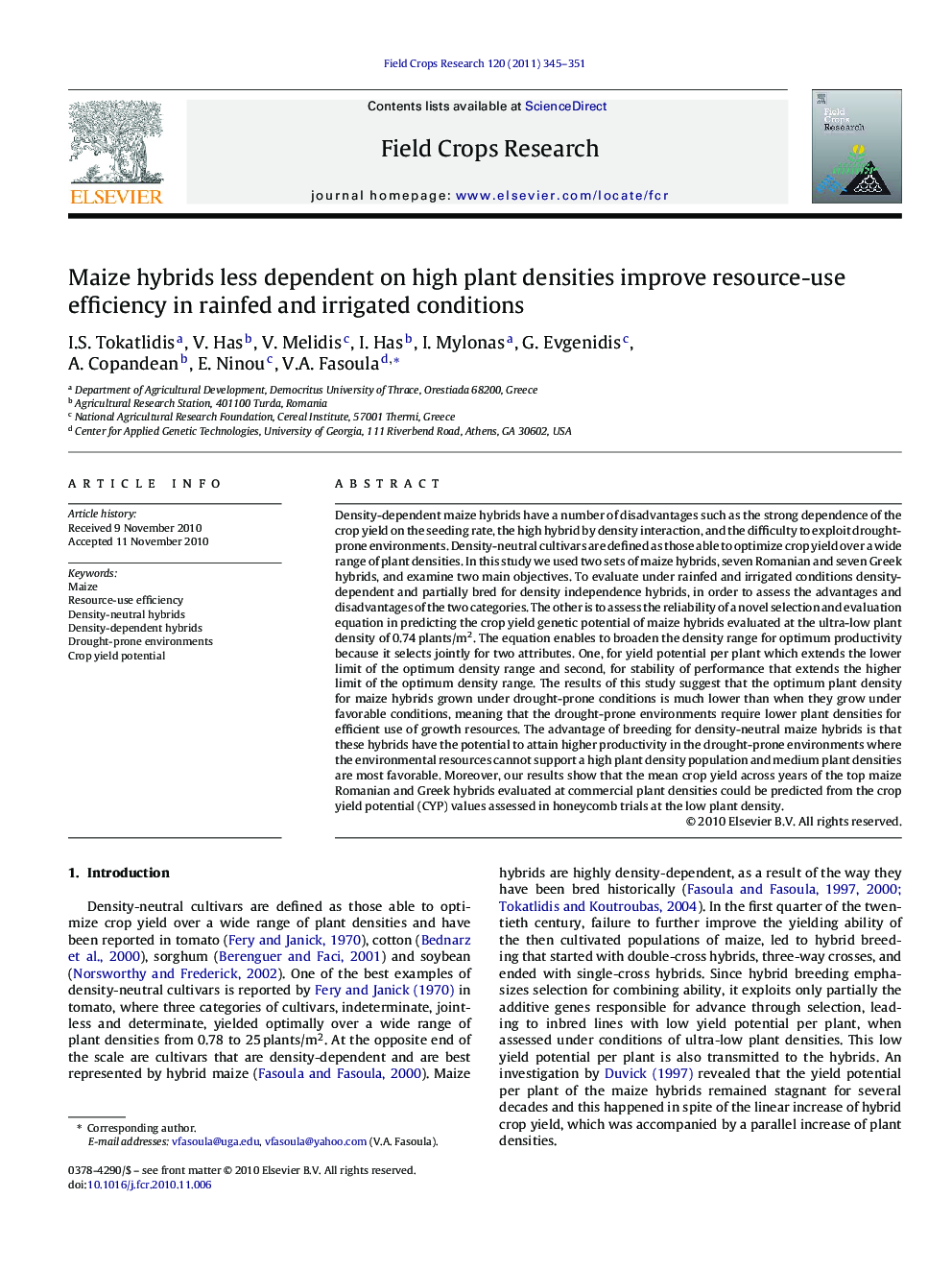| کد مقاله | کد نشریه | سال انتشار | مقاله انگلیسی | نسخه تمام متن |
|---|---|---|---|---|
| 4510834 | 1624739 | 2011 | 7 صفحه PDF | دانلود رایگان |

Density-dependent maize hybrids have a number of disadvantages such as the strong dependence of the crop yield on the seeding rate, the high hybrid by density interaction, and the difficulty to exploit drought-prone environments. Density-neutral cultivars are defined as those able to optimize crop yield over a wide range of plant densities. In this study we used two sets of maize hybrids, seven Romanian and seven Greek hybrids, and examine two main objectives. To evaluate under rainfed and irrigated conditions density-dependent and partially bred for density independence hybrids, in order to assess the advantages and disadvantages of the two categories. The other is to assess the reliability of a novel selection and evaluation equation in predicting the crop yield genetic potential of maize hybrids evaluated at the ultra-low plant density of 0.74 plants/m2. The equation enables to broaden the density range for optimum productivity because it selects jointly for two attributes. One, for yield potential per plant which extends the lower limit of the optimum density range and second, for stability of performance that extends the higher limit of the optimum density range. The results of this study suggest that the optimum plant density for maize hybrids grown under drought-prone conditions is much lower than when they grow under favorable conditions, meaning that the drought-prone environments require lower plant densities for efficient use of growth resources. The advantage of breeding for density-neutral maize hybrids is that these hybrids have the potential to attain higher productivity in the drought-prone environments where the environmental resources cannot support a high plant density population and medium plant densities are most favorable. Moreover, our results show that the mean crop yield across years of the top maize Romanian and Greek hybrids evaluated at commercial plant densities could be predicted from the crop yield potential (CYP) values assessed in honeycomb trials at the low plant density.
Research highlights▶ Density-dependent hybrids can not exploit effectively drought-prone environments. ▶ Density-neutral hybrids can be developed by selecting at ultra-low densities. ▶ Density-neutral hybrids have higher productivity in drought-prone environments. ▶ Evaluation in honeycomb trials predicts crop yield at commercial densities.
Journal: Field Crops Research - Volume 120, Issue 3, 14 February 2011, Pages 345–351